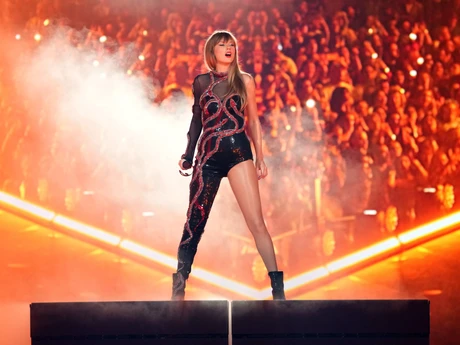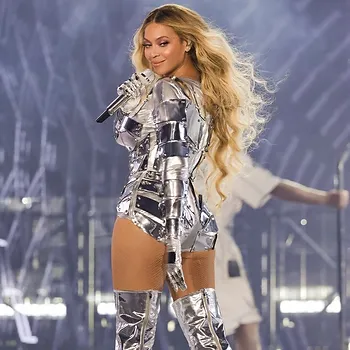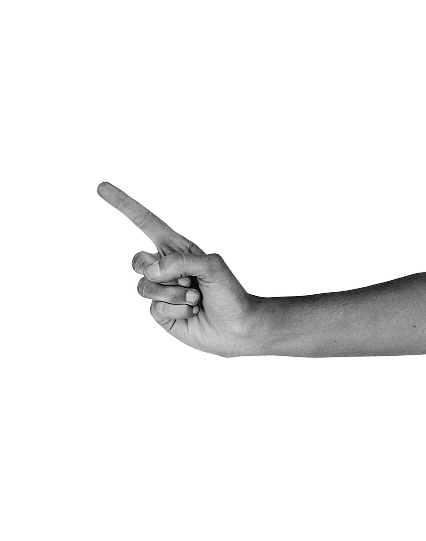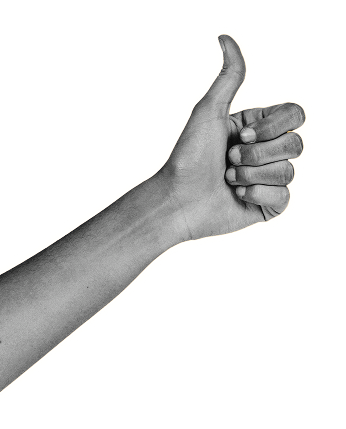
During our month-long hiatus from Decolonial Thoughts, I assumed the role of a casual observer, temporarily stepping back from the heavy task of constantly dissecting contemporary culture. I craved a moment to simply breathe. Yet, even in my respite, the ideas for this piece continued to dance around me, persistent and inquisitive. I dub this summer the “summer of representation.”
It began with the ERAS Tour by Taylor Swift and continued with the announcement of “The Renaissance World” by Beyoncé—a heartfelt tribute to the voices of black queerness, a group often shrouded in stigma and underrepresentation. Barbie, too, made waves with its vivid posters, ads, TikToks, and an inundation of pink. It was a cinematic feast made by women, for women, and its reception was nothing short of remarkable, ranking as the 12th highest-grossing movie in the United States. To conclude the season, we were treated to Netflix’s “HeartStopper” and “Glamorous,” stories of young, queer coming-of-age, with the latter boldly challenging gender norms. The steamy “Red White Royal Blue” appeared almost excessive after a slew of representation-focused films. However, there was a troubling pattern beneath the surface; these representations seemed to be confined to a specific group.

I’ll admit, I relished these shows, be they on the stage or on screen. In fact, there were moments when I felt irked by friends and family who pointed out the shortcomings in their portrayals. However, it was a comment from my younger brother that truly made me pause: “They were all cute, but I couldn’t get past the whiteness.” It struck a chord. What made it more disheartening was the sidelining of black and brown casts in these productions. During Taylor Swift’s ERAS tour, for instance, the vogue segment felt like a mere afterthought. Barbie, despite being hailed as a feminist manifesto, featured a predominantly white cast. I found myself dozing off during the screening, only to be awoken by my partner, reminding me of our impending flight later that night. I still ponder the line of mothers standing still so their daughters could witness their progress. I won’t feign expertise or anger on this matter; my response was simply a bewildered “huh?”
Barbie did not set out to birth a feminist movement, and it’s unwise to impose such an expectation on it.
Barbie, in my view, epitomized white representation. While I genuinely enjoyed the film, viewing it much like I would “Mean Girls” or “Legally Blonde,” as lighthearted entertainment, witnessing the fervent engagement it garnered, from tearful inspiration to the futile attempts of sexist individuals trying to ban it, felt somewhat embarrassing. It made me wonder, should black, marginalized feminists attempt to create a movie that portrays women in all their diversities, would the world react the same way? I tried not to let bitterness creep in, but as I encountered more takes, it became oddly satisfying to play the role of a cynic. It’s perfectly acceptable to watch a movie without ascribing profound meaning to it. Barbie did not set out to birth a feminist movement, and it’s unwise to impose such an expectation on it.
The portrayal of queerness in media appears to be confined to white, upper-class, conventionally attractive, able-bodied individuals. As I write this, I can’t help but chuckle, for I have little more to add. Many might roll their eyes with a “let people have their fun” attitude, but I ask, who benefits from such complacency? Certainly not individuals like me. If we simply let the world and its systems operate as intended by their creators, without questioning or challenging them, we will find ourselves with nothing. These films, despite their veneer of progressiveness, all centred on “white men.” The nadir, perhaps, was a movie that depicted the love story of a royal family member grappling with the “horrors” of being a white, queer, cis male, while his love interest could offer nothing more than another “prison” in the form of the “White House.” Again, as I watched, I shut my eyes and my thoughts, silently pleading for respite. I will add though, that I enjoyed the delusion.
One constant remained clear throughout the summer: Beyonce Giselle Knowles-Carter’s enduring relevance. She emerged as a beacon of hope quite literally. Her show, a tribute to her late Uncle Johnny who succumbed to AIDS, commenced with the progressive LGBTQIA+ Flag, spotlighting the intrinsic importance of black and brown bodies. From “Flaws and All” to “Summer Renaissance,” Beyonce demonstrated intentionality. Her work since ‘Self Titled’ has been a departure from whiteness, a rejection of appeasement, a defiance that reached its pinnacle with this Renaissance Tour. Though sponsored mainly by Tiffany & Co., blood diamonds and all, the sea of black, queer, big, and gender non-conforming bodies erased any reservations. She invited us into a world seldom seen, seldom acknowledged, MOTHERS MIND. This show stood as the highlight of the summer.

It’s not coincidental that Beyoncé chose this moment to abandon perfectionism. For what is life without its imperfections? Yet as she playfully dropped her microphone or missed a cue in her 5-step, you couldn’t help but wonder if this contradicted the intended narrative. All our flaws, our weighty histories, and our hidden beauty were thrust onto the stadium’s stage and made visible. It made one ponder if it’s our imperfections that truly make life beautiful and perfect.
Community.

